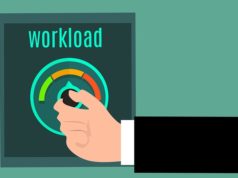
Hiring Seasonal Help
Millions of small businesses in the U.S. hire seasonal, summer, holiday or other part-time and temporary help. But finding such workers – especially good ones – isn’t easy and comes with a unique set of requirements compared to full time employees.
For example, you’ll need to decide what kind of workers you want (student interns; adult temps, etc.), where to find them and – if necessary – how to train them quickly and cost-effectively. You also need to know the regulations involving such workers, including the latest rules on child labor, Workers’ Comp, minimum wage, tax withholding, overtime pay, and temporary visas for foreign workers, among other things.
Here are six tips and tactics for a small business seeking to hire seasonal or other temporary help:
1. Hire Teens…But Know the Rules:
Teenagers out of school for the summer have always been a source of seasonal help for small businesses. Those 18 or older can work any job at any hours. Workers who are 16 or 17 can’t be employed in what the government considers “hazardous” positions, which usually includes operating power equipment of certain kinds.
Driving on the job is also forbidden for this age group, except for moving vehicles around on the business premises (no passengers). Teens 14 and 15 can only work at jobs not restricted by the U.S. Department of Labor. A quick search for “teen workers” on the DOL website (www.dol.gov) will reveal a wealth of information on rules that apply to specific types of businesses.
2. Create an Internship Program:
College student interns and recent grads are another option. Student interns are capable, motivated and – if well managed – highly valuable to your business. The trick is the “well-managed” part. You need a plan for making their presence truly productive, and you should recruit, train and manage interns just as you would full-timers.
The website Internships.com offers helpful tips about how to set up an intern program at your business. Look for “12 Steps to Setting up an Intern Program” in the Resources section. InternJobs.com is another site that offers information for employers.
3. Write it Out:
Treat temp, part-time and seasonal positions like you would any other and make it clear what the job entails. Write out detailed job descriptions so expectations are clear to both you and anyone you hire. Also put jobs offers in writing so it’s perfectly clear when the position starts and ends, and what compensation or benefits are offered (or not offered).
4. Hire Your Kids:
The good news about hiring your own kids is that children of any age are generally allowed to work in a business owned 100 percent by their parents — hazardous jobs excluded. But the rules are tricky. If parents are full owners, they need not pay immediate family members the minimum wage. But if they regularly hire non-family members, they must pay their kids the minimum wage.
“If you hire your children and own 100 percent of your sole proprietorship or partnership, you don’t have to withhold Social Security taxes from the kids, but you do have to withhold federal income tax and give your kids a W-2.”
5. Get the Minimum Wage Right:
Federal minimum wage rules may apply. But according to the NFIB Legal Foundation, there are potential exceptions such as these:
- Employees under the age of 20, for up to 90 days
- “Tipped” employees
- Full-time students employed in retail, service stores or agriculture, but only if the employer first obtains a certificate from the DOL.
- High school students at least 16 who are enrolled in vocational education courses – if the employer first obtains a student learner certificate from a regional DOL office.
6. Keep it Legal:
Just because workers are seasonal or part-time doesn’t mean the red tape disappears. For example, you will still need a Federal I-9 employment eligibility form for each worker. This is the form that verifies a worker’s eligibility to be employed in the U.S. The government requires an I-9 for every employee within the first three days of employment, and there’s no small business exemption.
You can download the form at the U.S. Citizenship and Immigration Services website (www.uscis.gov).








